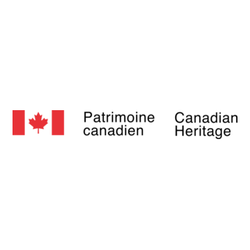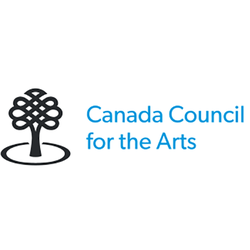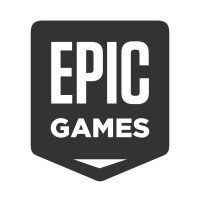
Canada Periodical Fund – Collective Initiatives
At a glance
- Maximum amount : 500,000 $
- Up to 75% of project cost
- Open Date : April 1, 2024
- Closing date : August 31, 2024
- Information and cultural industries
- Canada
- All legal structures
- All revenue ranges
- All organization sizes
- Language Minorities
- Canadians
Overview
Financial assistance to increase the sustainability of the Canadian print magazine and non-daily community newspaper industries.
Activities funded
The Canada Periodical Fund's Collective Initiatives component supports projects that benefit members of the applicant organization and improve the competitive performance of the Canadian periodical industry.
- Research aimed at analyzing industry trends, new technologies, new business models
- Market research and business plans
- Collective initiatives in response to industry trends (aimed at marketing, promotion, education, awareness)
- Training and professional development for members of the periodical industry
- Promotion of the Canadian periodical industry in the domestic and foreign markets, particularly through the Web and other digital platforms
Eligibility
To be eligible for funding, your organization must meet specific criteria. Below is a list of the eligibility criteria:
- Be incorporated as a non-profit organization under the laws of Canada or a province, representing or serving stakeholders in the Canadian magazine or community newspaper publishing industries
- Be a related association, such as those representing or serving writers
- Be a press agency or media group that is serving a wide number of written media throughout Canada
- Have its head office located in Canada
- Have been in operation for at least one financial year prior to application
- Have a business number for funding applications to the Department of Canadian Heritage
Who is eligible?
Yes, there are eligible types of organizations for this grant. Eligible applicants must be incorporated as a non-profit organization under the laws of Canada or a province, and they must represent or serve stakeholders in the Canadian magazine or community newspaper publishing industries.
- Non-profit organizations representing or serving the Canadian magazine or community newspaper publishing industries
- Related associations representing or serving writers
- Press agencies or media groups serving a wide number of written media throughout Canada
Who is not eligible
There are specific types of companies that are not eligible for this grant.
- For-profit organizations
- Organizations not incorporated under the laws of Canada or a province
- Organizations without a head office located in Canada
- Organizations that have been in operation for less than one financial year prior to application
- Professional associations that do not primarily benefit the periodical industry
Eligible expenses
Yes, there are eligible expenses for this grant. Only project-related expenses, which can be of cash and in-kind value, are eligible.
- Market research costs
- Venue and equipment rental
- Technology costs (e.g., specialized software licensing, custom programming)
- Promotion and marketing costs
- Professional fees (e.g., contractors)
- Training
- Registration fees (excluding participant fees for the organization’s own events)
- Paid internships
- Project-related travel expenses (adhering to government rates)
- Translation costs
- Project-related salary costs (less than 25% of total eligible project expenses)
- Project-related overhead costs (up to 10% of the total recommended amount)
- Costs of an audited financial report for the project (for contributions of $250,000 or more, or when required by the Program)
Eligible geographic areas
The eligible geographic zone for this grant is Canada. All project submissions must have their head office located in Canada.
- Head office must be located in Canada
- Incorporation under the laws of Canada or a province
Selection criteria
Yes, there are evaluation and selection criteria for this grant. Your application will be evaluated based on how well your project meets the objectives of the Canada Periodical Fund and the Collective Initiatives component, as well as other factors including industry need, financial need, and expected outcomes.
- Degree to which the project meets the objectives of the Canada Periodical Fund and the Collective Initiatives component
- Demonstrated industry need for the project
- Suitability of the total project costs to the organization’s scale of operations
- Demonstrated financial need from Canadian Heritage to ensure project success
- Degree to which the project can demonstrate short-term results, measurable improvement, added value from previous projects or activities, and/or a sustainable strategy
- Impact of the project on the Canadian periodical industry (e.g., lasting benefits, broad reach to a variety of stakeholders)
- Degree of involvement and assistance or financial commitment from other sources, including members of the organization and other stakeholders
- Demonstrated capacity of the organization to undertake the project
- Suitability of the budget to the scale of the project
- Clarity and relevance of expected results and performance measures, including indicators that will be used to assess the success of the project
How to apply
Read the Application Guidelines
Determine Eligibility
Prepare Supporting Documents
Register for a Business Number (if applicable)
Complete Financial Statements
Submit Application Online
Await Acknowledgement
Application Evaluation
Funding Decision
Receive Funding
Submit Reports
Additional information
Additional miscellaneous information related to the Canada Periodical Fund's Collective Initiatives component include specific conditions and definitions to ensure compliance and transparency.
- An audited financial report is required for contributions of $250,000 and over.
- Decisions regarding eligibility and funding amounts are final.
- Funding recipients must publicly acknowledge the financial support received from the Government of Canada in all communications materials and promotional activities.
- Organizations receiving funding must comply with values underlying the Canadian Charter of Rights and Freedoms, the Canadian Human Rights Act, and Canada’s Anti-Racism Strategy.
- Recipients must create a workplace free from harassment, abuse, and discrimination.
- The information submitted in the application may be disclosed according to the Access to Information Act and the Privacy Act.
- Recipients' accounts and records may be audited to ensure compliance with funding agreements.
- Organizations must keep records, documents, or other information for five years for auditing purposes.
- Funding can be disbursed either as a grant or as a contribution, with specific conditions applying to each.
Contacts
Frequently Asked Questions about the Canada Periodical Fund – Collective Initiatives Program
What is the Canada Periodical Fund – Collective Initiatives?
How much funding can be received?
What is the deadline to apply?
Who is eligible for the Canada Periodical Fund – Collective Initiatives program?
What expenses are eligible under Canada Periodical Fund – Collective Initiatives?
Who can I contact for more information about the Canada Periodical Fund – Collective Initiatives?
Where is the Canada Periodical Fund – Collective Initiatives available?
More programs like this

ISED — Artificial intelligence (AI)
Innovation, Science and Economic Development Canada (ISED)
Canada Book Fund (CBF) — Support for Organizations – Internships
Canadian Heritage
Strategic Funds and Initiatives — Market Access Strategy
Canada Council for the Arts (CCA)
Canada Media Fund (CMF) - Changing Narratives Fund (CNF)
Canadian Heritage
CMF — Innovation & Experimentation Program
Canada Media Fund (CMF)
Canada Book Fund - Support for Organizations
Canadian Heritage
Local Journalism Initiative - Changing Narratives Fund
Canadian Heritage
Digital Citizen Research Program - Digital Citizen Contribution Program
Canadian Heritage
Epic MegaGrants
Epic Games